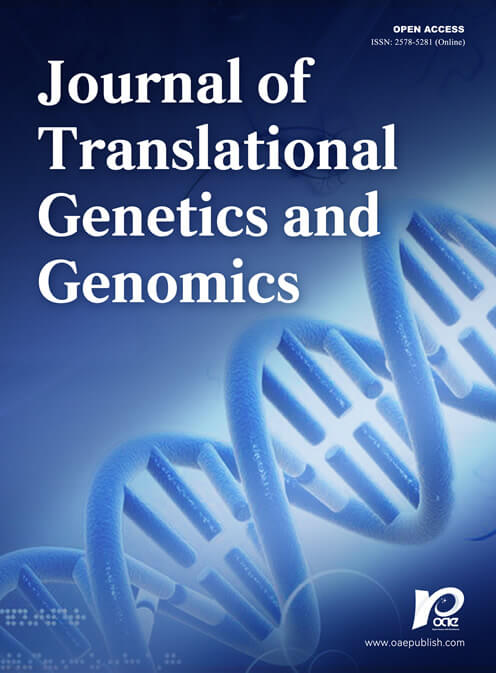REFERENCES
1. Brown JT, Eum S, Cook EH, Bishop JR. Pharmacogenomics of autism spectrum disorder. Pharmacogenomics 2017;18:403-14.
2. Dodsworth T, Kim DD, Procyshyn RM, Ross CJ, Honer WG, Barr AM. A systematic review of the effects of CYP2D6 phenotypes on risperidone treatment in children and adolescents. Child Adolesc Psychiatry Ment Health 2018;12:37.
3. Arranz MJ, Blanco JP, Samperiz BA. Pharmacogenetics of the efficacy of antipsychotic drugs in schizophrenia. In: Rybakowski JK, Serretti A, editors. Genetic influences on response to drug treatment for major psychiatric disorders. Cham: Springer International Publishing; 2016. p. 1-20.
4. Fabbri C, Serretti A. Pharmacogenetics of the efficacy and side effects of antidepressant drugs. In: Rybakowski JK, Serretti A, editors. Genetic influences on response to drug treatment for major psychiatric disorders. Cham: Springer International Publishing; 2016. p. 39-54.
5. Fabbri C, Hosak L, Mössner R, et al. Consensus paper of the WFSBP Task Force on Genetics: Genetics, epigenetics and gene expression markers of major depressive disorder and antidepressant response. World J Biol Psychiatry 2017;18:5-28.
6. Pagerols M, Richarte V, Sánchez-Mora C, et al. Pharmacogenetics of methylphenidate response and tolerability in attention-deficit/hyperactivity disorder. Pharmacogenomics J 2017;17:98-104.
7. Joensen B, Meyer M, Aagaard L. Specific genes associated with adverse events of methylphenidate use in the pediatric population: a systematic literature review. J Res Pharm Pract 2017;6:65-72.
9. Gomez-Sanchez CI, Carballo JJ, Riveiro-Alvarez R, et al. Pharmacogenetics of methylphenidate in childhood attention-deficit/hyperactivity disorder: long-term effects. Sci Rep 2017;7:10391.
10. Naumova D, Grizenko N, Sengupta SM, Joober R. DRD4 exon 3 genotype and ADHD: Randomised pharmacodynamic investigation of treatment response to methylphenidate. World J Biol Psychiatry 2019;20:486-95.
11. Myer NM, Boland JR, Faraone SV. Pharmacogenetics predictors of methylphenidate efficacy in childhood ADHD. Mol Psychiatry 2018;23:1929-36.
12. Fageera W, Chaumette B, Fortier MÈ, et al. Association between COMT methylation and response to treatment in children with ADHD. J Psychiatr Res 2021;135:86-93.
13. Bonvicini C, Faraone SV, Scassellati C. Attention-deficit hyperactivity disorder in adults: A systematic review and meta-analysis of genetic, pharmacogenetic and biochemical studies. Mol Psychiatry 2016;21:872-84.
14. McCracken JT, Badashova KK, Posey DJ, et al. Positive effects of methylphenidate on hyperactivity are moderated by monoaminergic gene variants in children with autism spectrum disorders. Pharmacogenomics J 2014;14:295-302.
15. Correia CT, Almeida JP, Santos PE, et al. Pharmacogenetics of risperidone therapy in autism: association analysis of eight candidate genes with drug efficacy and adverse drug reactions. Pharmacogenomics J 2010;10:418-30.
16. Purcell S, Neale B, Todd-Brown K, et al. PLINK: a tool set for whole-genome association and population-based linkage analyses. Am J Hum Genet 2007;81:559-75.
17. Gadow KD, Pinsonneault JK, Perlman G, Sadee W. Association of dopamine gene variants, emotion dysregulation and ADHD in autism spectrum disorder. Res Dev Disabil 2014;35:1658-65.
18. Froehlich TE, Epstein JN, Nick TG, et al. Pharmacogenetic predictors of methylphenidate dose-response in attention-deficit/hyperactivity disorder. J Am Acad Child Adolesc Psychiatry 2011;50:1129-1139.e2.
19. Akay AP, Resmi H, Güney SA, et al. Serum brain-derived neurotrophic factor levels in treatment-naïve boys with attention-deficit/hyperactivity disorder treated with methylphenidate: an 8-week, observational pretest-posttest study. Eur Child Adolesc Psychiatry 2018;27:127-35.
20. Winsberg BG, Comings DE. Association of the dopamine transporter gene (DAT1) with poor methylphenidate response. J Am Acad Child Adolesc Psychiatry 1999;38:1474-7.
21. Nuntamool N, Ngamsamut N, Vanwong N, et al. Pharmacogenomics and efficacy of risperidone long-term treatment in Thai autistic children and adolescents. Basic Clin Pharmacol Toxicol 2017;121:316-24.
22. Tharoor H, Lobos EA, Todd RD, Reiersen AM. Association of dopamine, serotonin, and nicotinic gene polymorphisms with methylphenidate response in ADHD. Am J Med Genet B Neuropsychiatr Genet 2008;147B:527-30.
23. Ji HS, Paik KC, Park WS, Lim MH. No association between the response to methylphenidate and DRD4 gene polymorphism in korean attention deficit hyperactivity disorder: a case control study. Clin Psychopharmacol Neurosci 2013;11:13-7.
24. Zeni CP, Guimarães AP, Polanczyk GV, et al. No significant association between response to methylphenidate and genes of the dopaminergic and serotonergic systems in a sample of Brazilian children with attention-deficit/hyperactivity disorder. Am J Med Genet B Neuropsychiatr Genet 2007;144B:391-4.
25. Sukasem C, Vanwong N, Srisawasdi P, et al. Pharmacogenetics of risperidone-induced insulin resistance in children and adolescents with autism spectrum disorder. Basic Clin Pharmacol Toxicol 2018;123:42-50.
26. Oblak A, Gibbs TT, Blatt GJ. Reduced serotonin receptor subtypes in a limbic and a neocortical region in autism. Autism Res 2013;6:571-83.
27. Park YH, Lee KK, Kwon HJ, et al. Association between HTR1A gene polymorphisms and attention deficit hyperactivity disorder in Korean children. Genet Test Mol Biomarkers 2013;17:178-82.
28. Abdelrahman HM, Sherief LM, Alghobashy AA, et al. Association of 5-HT2A receptor gene polymorphisms with gastrointestinal disorders in Egyptian children with autistic disorder. Res Dev Disabil 2015;36C:485-90.
29. Smith RM, Banks W, Hansen E, Sadee W, Herman GE. Family-based clinical associations and functional characterization of the serotonin 2A receptor gene (HTR2A) in autism spectrum disorder. Autism Res 2014;7:459-67.
30. Hervás A, Toma C, Romarís P, et al. The involvement of serotonin polymorphisms in autistic spectrum symptomatology. Psychiatr Genet 2014;24:158-63.
31. Gadow KD, Smith RM, Pinsonneault JK. Serotonin 2A receptor gene (HTR2A) regulatory variants: possible association with severity of depression symptoms in children with autism spectrum disorder. Cogn Behav Neurol 2014;27:107-16.
32. Valencia AV, Páez AL, Sampedro ME, et al. [Evidence for association and epistasis between the genetic markers SLC6A4 and HTR2A in autism etiology]. Biomedica 2012;32:585-601.
33. Al-Janabi I, Arranz MJ, Blakemore AI, et al. Association study of serotonergic gene variants with antipsychotic-induced adverse reactions. Psychiatr Genet 2009;19:305-11.
34. Arranz MJ, Salazar J, Hernández MH. Pharmacogenetics of antipsychotics: clinical utility and implementation. Behav Brain Res 2021;401:113058.
35. Takekita Y, Fabbri C, Kato M, et al. HTR1A polymorphisms and clinical efficacy of antipsychotic drug treatment in schizophrenia: a meta-analysis. Int J Neuropsychopharmacol 2016;19:pyv125.
36. Zhao X, Huang Y, Li J, et al. Association between the 5-HT1A receptor gene polymorphism (rs6295) and antidepressants: a meta-analysis. Int Clin Psychopharmacol 2012;27:314-20.
37. Hazelwood LA, Sanders-Bush E. His452Tyr polymorphism in the human 5-HT2A receptor destabilizes the signaling conformation. Mol Pharmacol. 2004;66:1293-300.
38. Li P, Tiwari HK, Lin WY, et al. Genetic association analysis of 30 genes related to obesity in a European American population. Int J Obes (Lond) 2014;38:724-9.
39. Zhao X, Sun L, Sun YH, et al. Association of HTR2A T102C and A-1438G polymorphisms with susceptibility to major depressive disorder: a meta-analysis. Neurol Sci 2014;35:1857-66.
40. Reynolds GP, Hill MJ, Kirk SL. The 5-HT2C receptor and antipsychoticinduced weight gain - mechanisms and genetics. J Psychopharmacol 2006;20:15-8.
41. Saghazadeh A, Rezaei N. Brain-derived neurotrophic factor levels in autism: a systematic review and meta-analysis. J Autism Dev Disord 2017;47:1018-29.
42. Amiri A, Torabi Parizi G, Kousha M, et al. Changes in plasma brain-derived neurotrophic factor (BDNF) levels induced by methylphenidate in children with Attention deficit-hyperactivity disorder (ADHD). Prog Neuropsychopharmacol Biol Psychiatry 2013;47:20-4.
43. Yoo HJ, Yang SY, Cho IH, Park M, Kim SA. Polymorphisms of BDNF gene and autism spectrum disorders: family based association study with korean trios. Psychiatry Investig 2014;11:319-24.
44. Kim BN, Cummins TD, Kim JW, et al. Val/Val genotype of brain-derived neurotrophic factor (BDNF) Val⁶⁶Met polymorphism is associated with a better response to OROS-MPH in Korean ADHD children. Int J Neuropsychopharmacol 2011;14:1399-410.
45. Manchia M, Fanos V. Targeting aggression in severe mental illness: The predictive role of genetic, epigenetic, and metabolomic markers. Prog Neuropsychopharmacol Biol Psychiatry 2017;77:32-41.
46. Park S, Kim JW, Kim BN, Shin MS, Yoo HJ, Cho SC. Catechol-O-methyltransferase Val158-Met polymorphism and a response of hyperactive-impulsive symptoms to methylphenidate: a replication study from South Korea. J Psychopharmacol 2014;28:671-6.
47. Salatino-Oliveira A, Genro JP, Zeni C, et al. Catechol-O-methyltransferase valine158methionine polymorphism moderates methylphenidate effects on oppositional symptoms in boys with attention-deficit/hyperactivity disorder. Biol Psychiatry 2011;70:216-21.
48. McGough JJ, McCracken JT, Loo SK, et al. A candidate gene analysis of methylphenidate response in attention-deficit/hyperactivity disorder. J Am Acad Child Adolesc Psychiatry 2009;48:1155-64.
49. Kereszturi E, Tarnok Z, Bognar E, et al. Catechol-O-methyltransferase Val158Met polymorphism is associated with methylphenidate response in ADHD children. Am J Med Genet B Neuropsychiatr Genet 2008;147B:1431-5.
50. Cheon KA, Jun JY, Cho DY. Association of the catechol-O-methyltransferase polymorphism with methylphenidate response in a classroom setting in children with attention-deficit hyperactivity disorder. Int Clin Psychopharmacol 2008;23:291-8.
51. Bruxel EM, Salatino-Oliveira A, Genro JP, et al. Association of a carboxylesterase 1 polymorphism with appetite reduction in children and adolescents with attention-deficit/hyperactivity disorder treated with methylphenidate. Pharmacogenomics J 2013;13:476-80.
52. Nemoda Z, Angyal N, Tarnok Z, Gadoros J, Sasvari-Szekely M. Carboxylesterase 1 gene polymorphism and methylphenidate response in ADHD. Neuropharmacology 2009;57:731-3.









